
Bay of Pigs is a board wargame designed and published by Jim Bumpas in 1976 that simulates the CIA-backed invasion of Cuba in 1961 that planned to overthrow the regime of Fidel Castro.

Bay of Pigs is a board wargame designed and published by Jim Bumpas in 1976 that simulates the CIA-backed invasion of Cuba in 1961 that planned to overthrow the regime of Fidel Castro.
In 1958, forces under Fidel Castro successfully overthrew the Cuban dictator Carlos Prio. Castro subsequently installed a Communist government, nationalized American businesses, cut off ties to the United States and reached out to the Soviet Union. Anti-Castro Cubans who had fled, with American financial aid, led an attempted invasion of Cuba at the Bay of Pigs. [1]
Bay of Pigs is a two-player game in which one player controls the invading anti-Castro forces, and the other player controls the F.A.R. (pro-Castro defenders). The rules cover sea transport, amphibious and airborne landings, supply issues, and air combat, as well as air and naval bombardment. [2] [3] The paper hex grid map is scaled at 1 km per hex, and each game turn six hours of game time. [2]
Game designer Jim Bumpas had successfully designed two wargames in 1975, Schutztruppe and Jerusalem! The following year, the 15th anniversary of the Bay of Pigs invasion, Bumpas self-published a wargame that simulated the attempted invasion. Bumpas made no secret of where his sympathies lay, dedicating the game to the 15th anniversary of "the successful Cuban defence", [3] and noting that the invading force "has no chance to defeat the forces of the F.A.R." [4]
In the 1977 book The Comprehensive Guide to Board Wargaming , Nicholas Palmer described the game as "Fairly easy to play and fast-moving." [3]
In Issue 28 of Moves , Richard Berg thought there were plenty of new ideas in Bay of Pigs, but was "not too sure whether some of these ideas should appear in a game." Berg found the self-published game "fairly well done and relatively attractive." He also found the rules to be "fairly standard." He concluded by that "the game plays smoothly and quite quickly", but pointed out that the game was very unbalanced, with almost no chance for the invaders to win. [4]
In The Guide to Simulations/Games for Education and Training, Martin Campion warned teachers thinking of using this game in the classroom that "The rules are rather sketchy, so if you are interested, be prepared to make extemporaneous additions as needed." [2]
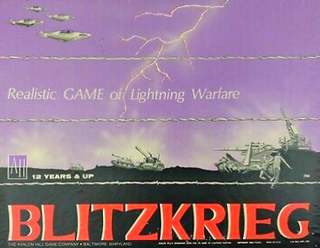
Blitzkrieg is a strategic-level wargame published by Avalon Hill in 1965 that simulates a non-historical attack by one major power against another using the blitzkrieg strategy. It was the first commercial wargame that did not simulate an actual historical battle, and with almost 400 counters, it was a precursor to the "monster" wargames of the 1970s featuring more than a thousand counters.
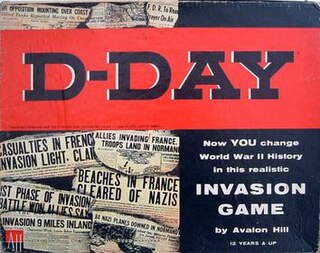
D-Day is a board wargame published by Avalon Hill in 1961 that simulates the six months of the European Campaign of World War II from the Normandy Invasion to the crossing of the Rhine. It was the first wargame to feature the now ubiquitous hex grid map and cardboard counters, and was revised and re-released in 1962, 1965, 1971, 1977 and 1991.
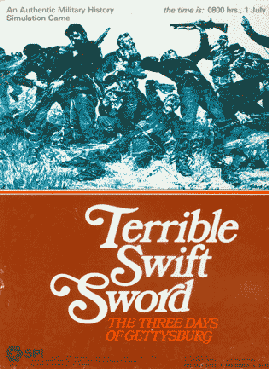
Terrible Swift Sword: Battle of Gettysburg Game is a grand tactical regimental level board wargame published by Simulations Publications, Inc. (SPI) in 1976 that simulates the Battle of Gettysburg during the American Civil War. A second edition was published by TSR in 1986.

Tobruk, subtitled "Tank Battles in North Africa 1942", is a board wargame published by Avalon Hill in 1975 that simulates tank combat in North Africa during World War II.

NATO: Operational Combat in Europe in the 1970s is a board wargame published by Simulations Publications Inc. (SPI) in 1973 that simulates an invasion of Western Europe by the Warsaw Pact.
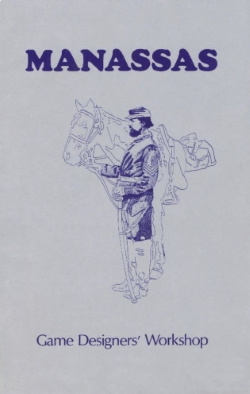
Manassas is a board wargame originally published by Historical Concepts in 1974, and republished by Game Designers Workshop (GDW) in 1977 that simulates the First Battle of Bull Run during the American Civil War.

The Siege of Jerusalem, 70 A.D. is a board wargame published by Historical Perspectives in 1976 that simulates the Roman attack on Jerusalem by Cestius Gallus. The game was subsequently bought by Avalon Hill, revised and republished in 1989.

Schutztruppe, subtitled "East African Guerilla Warfare, 1914-1918", is a board wargame originally self-published by Jim Bumpas in 1975, then published by Flying Buffalo in 1978, that simulates the conflict between German Schutztruppe and Allied forces during World War I.

The Battle of Borodino: Napoleon in Russia 1812 is a board wargame published by Simulations Publications Inc. (SPI) in 1972 that is a simulation of the Battle of Borodino during the French invasion of Russia in 1812.

The Conquerors is a package of two board wargames published by Simulations Publications Inc. (SPI) in 1977. One game, The Macedonians, simulates the invasion of Persia by Alexander the Great, and the other, The Romans, covers the eastward expansion of the Roman Empire following the Second Punic War.
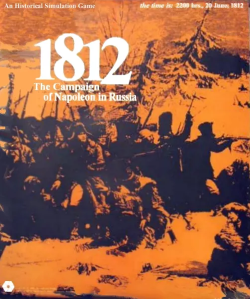
1812: The Campaign of Napoleon in Russia is a collection of two board wargames published by Simulations Publications Inc. (SPI) in 1972 that both simulate Napoleon's disastrous invasion of Russia. One game uses a traditional hex grid map, and the other uses a map of areas and regions.

Fulda Gap, subtitled "The First Battle of the Next War", is a board wargame published by Simulations Publications Inc. (SPI) in 1977 that simulates a hypothetical attack by Warsaw Pact forces against NATO defenders in West Germany using technology and tactics of the mid-1970s

Jerusalem! Tactical Game of the 1948 War is a board wargame published by Simulations Design Corporation (SDC) in 1975 that simulates the 1948 Arab–Israeli War.

Korea: The Mobile War is a board wargame published by Simulations Publications Inc. (SPI) in 1969 that simulates the Korean War.
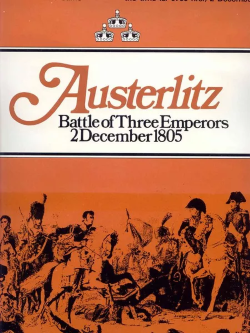
Austerlitz, subtitled "The Battle of Three Emperors, 2 December 1805", is a board wargame published by Simulations Publications Inc. (SPI) in 1972 that simulates the Battle of Austerlitz between Napoleon's French forces, and the Austrian-Russian forces of the Third Coalition.
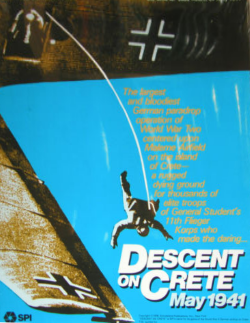
Descent on Crete is a board wargame published by Simulations Publications Inc. (SPI) in 1978 that simulates the German airborne invasion of Crete during World War II. A game with two large maps, hundreds of counters, and complex rules, Descent on Crete initially sold well, but sales rapidly declined.

Missile Crisis is a board wargame published by Attack Wargaming Association (AWA) in 1975 that simulates a hypothetical American invasion of Cuba in response to the Cuban Missile Crisis.
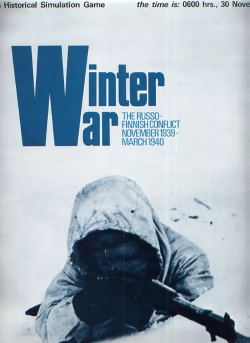
Winter War: The Russo-Finnish Conflict is a board wargame published by Simulations Publications Inc. (SPI) in 1972 that simulates the Soviet Union's 1939 invasion of Finland during World War II.
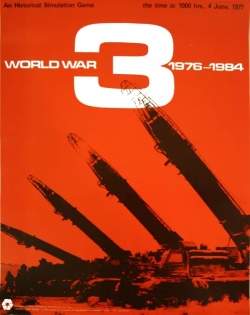
World War 3: 1976–1984 is a Cold War-era board wargame published by Simulations Publications Inc. (SPI) in 1975 that simulates a hypothetical non-nuclear war for control of the world set in the 1970s. The game sold very well, and was one of SPI's top-selling games for almost a year.

South Africa: Vestige of Colonialism is a board wargame published by Simulations Publications Inc. (SPI) in 1977 that simulates a hypothetical guerilla war during the apartheid era waged by the African National Congress (ANC) against forces of the Republic of South Africa (RSA).